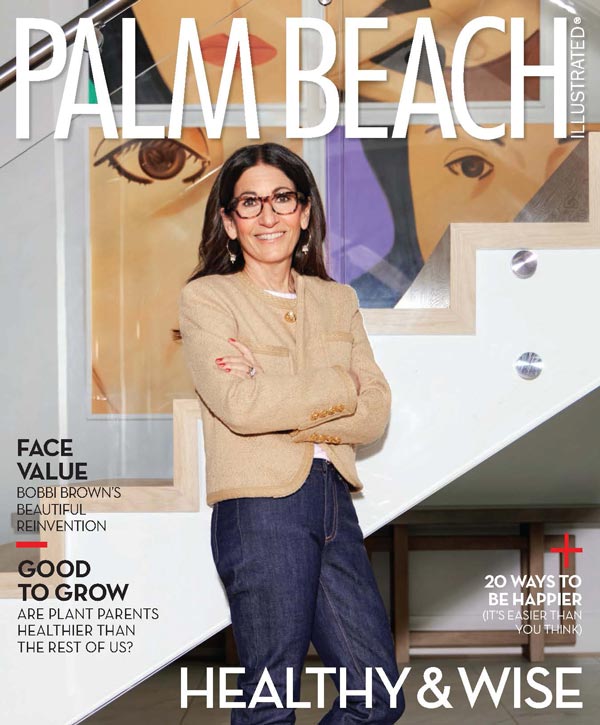Even as a child, Ramon Tebar’s world revolved around music. Born and raised in Valencia, Spain, he began playing piano around age 5 and was immediately obsessed. “Since I was very little, I just [knew] to make music—that’s everything I wanted to do,” he says. “I started playing music before I could even read music.”
 |
| Ramon Tebar. Photo by Koke Photography |
As the artistic and music director for the Palm Beach Symphony, he harnesses that innate passion for the conductor podium in every performance. This season, he’ll conduct five programs, each at a different venue in the county. “The repertoire of the program is very connected to the venue,” he says.
For example, on December 7, the symphony will mount a subdued season opener at the intimate Society of the Four Arts Walter S. Gubelmann Auditorium. “Homage to Pablo Casals” will feature soloist Amit Peled playing on a cello Casals himself once owned. The season closer, however, is a “Monumental Engagement”—in name, theme, and venue. On April 10, pianist Lola Astanova will join the symphony at the Kravis Center for a program that concludes with the company premiere of Mahler’s Symphony No. 5.
Other 2016 Palm Beach Symphony performances include “Notes from the Balcony” at the Flagler Museum (January 11), “Two German Romantics” at The Benjamin School (January 27), and “Fantastique Evening” at the Mar-a-Lago Club (March 16).
Before you go, get to know the man on the podium. PBI.com caught up with Tebar ahead of the season to talk about his musical roots and his love of conducting.
PBI.com: At what point did you decide to focus on conducting?
Tebar: When I was 15, I won my first contract to work in my hometown opera theater as a piano accompanist for the rehearsals of the opera and also as assistant conductor. I found myself being in the middle of the opera productions, and I started conducting the band backstage. Everything came very natural, [and then] I had the chance to conduct my first opera. I was about 19, 20, and it was Don Pasquale.
What’s the most rewarding aspect of conducting?
I always like to say that when I’m in the podium, I’m in the best seat in the theater. Another rewarding thing is just to be working with this art form, with the element of the sound that happens just at the moment that you are there conducting with your orchestra. The work, the masterpiece happens just at that moment—not before and not after.
What’s the most challenging aspect of it?
I would say conducting is not more difficult than playing an instument technically, but it has more responsibility because you are in charge of a whole chorus, a lot of principle soloists, and a big orchestra. If you’re doing opera, you are responsible for all of these forces—the lighting, the staging. It has more responsibility.
As a conductor, do you feel that knowledge of the piano is key?
Knowledge of the piano is key. … It all starts with how the piano literature is written. You can play the harmony, which is the base and the columns of the music. I think this is essential for a conductor. Then, when you read a score, you read it in the same way [as you would] piano music. Of course everything is condensed, but with orchestra, I would say it’s the same. You have all the different instruments, you know all the different layers, and you have to be able to hear in your mind the harmony or how you want it to sound.
Do you have a favorite composer?
I have composers [whom] I love to listen to but not always love to conduct—and the opposite, [too]. I love to listen to Mozart, and although I’ve conducted a lot of Mozart—I love to conduct it—I feel more comfortable with other repertoire. And it’s probably because I think conducting is very physical. I think my physiology, my arms are very well suited with music of the romantic era or the beginning of the twentieth century, like Shostakovich, Rachmaninoff, Puccini, Brahms, or the German repertoire. … After every concert, I always find different ways of how to swing my arms to the specific repertoire.
Focusing more on the Palm Beach Symphony, when did you decide to join the Palm Beach Symphony and why did you feel it was a good fit?
When I moved to the United States at the end of 2005—almost 10 years ago—I came with a contract with the Palm Beach Opera as the assistant conductor. Then, the first season I [worked with] the musicians of the Palm Beach Opera. Well, they saw me conduct and some of them recommended me to the former music director of the Palm Beach Symphony. He gave me an opportunity, and as soon as I conducted my first concert they started giving me more concerts. I started as assistant conductor, then associate conductor, resident conductor, and then they appointed me artistic and music director. It was a very smooth transition from the very beginning.
What sets the Palm Beach Symphony apart from other similiar organizations?
One of the essential qualities and one of the appeals that is attractive to audiences is we are not the usual symphony that is always the same size, performs always in the same venues, and the same kind of repertoire, but all the opposite. We always present our programs in different venues and we form the size of the orchestra according to the repertoire we are doing. Also, the repertoire of the program is very connected to the venue. So, for instance, last season, we did the cycle of the Brandenburg Concertos by Bach. We did it in this distinguished, beautiful church in Palm Beach and I thought, being in a church, there’s no better composer than Bach. He would write the music always for churches. Everything is very connected.
Are there any particular pieces or performances you can’t wait to conduct this season?
That’s difficult to say, because I’m like a chef of a restaurant who thinks a lot about every single different thing [on a] menu. Even the smaller concerts, the smaller venues are as significant to me as the big ones.









Facebook Comments